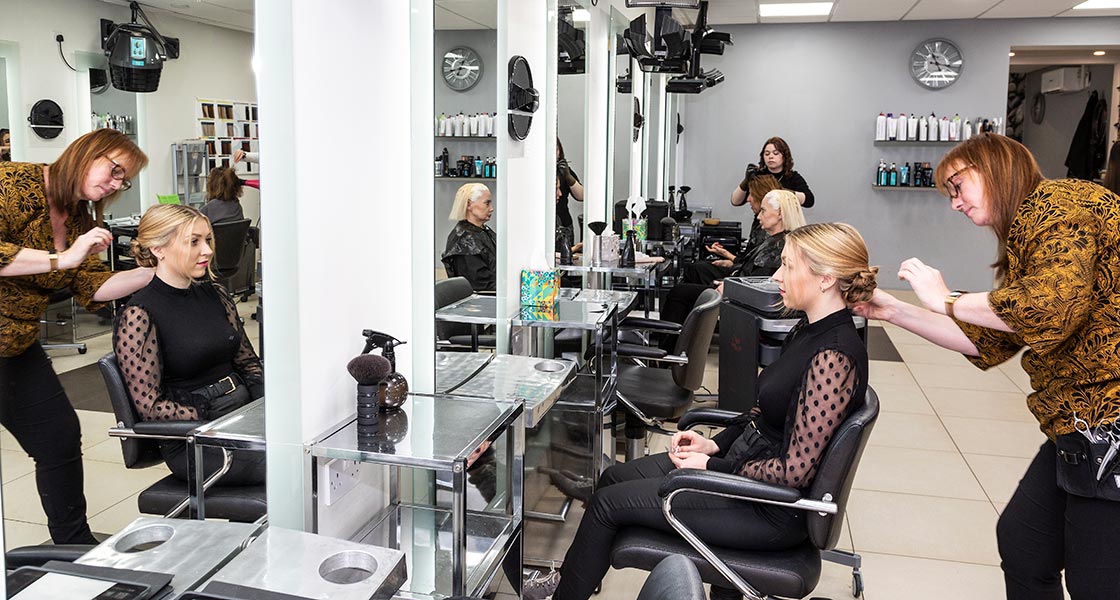
Hairdressers are in charge of making people feel good about themselves. Regularly, hairdressers cut hair in several styles, colour hair in various colours, and style hair for multiple scenarios. In addition, hairstylists demonstrate their creativity and skill by providing a range of hair treatments to their clients, whether they work in an upscale salon and spa, a casual hair salon, or from home.
Responsibilities
Throughout your apprenticeship, you may help:
As an apprentice hairdresser, you’ll:
- welcome customers
- shampoo and condition hair
- cut simple styles
- make sure towels and hair products are well stocked
- keep the salon clean and tidy
- make appointments.
As a more senior hairdresser, you’ll:
- talk to clients and suggest style ideas
- cut and style hair
- give advice on minor hair and scalp problems
- take payments
- order stock and promote products to customers
- keep up to date with new trends, techniques and hair products.
Salary
As an apprentice hairdresser your starting salary will be £14,000 a year rising to £30,000 a year once qualified and with experience. Tips from customers, and possibly commission from products you may sell in the shop, can increase your income.
Working hours
You will be expected to work weekends, evenings and holidays. Typically, you will work 37 to 40 hours a week.
Working environment
You could work in a salon, at a client’s home, at a health spa, at a store, at an adult care home or on a cruise ship.
Your working environment may be physically demanding.
Qualifications
Qualifications you can achieve as an apprentice hairdresser include:
Level 2 Hair Professional – Entry requirements for this level include some GCSEs, usually including English and maths, or equivalent, for an intermediate apprenticeship. this qualification will typical take 24 months to complete.
Skills
On a hairdresser apprenticeship, you’ll learn:
- customer service skills
- to be thorough and pay attention to detail
- patience and the ability to remain calm in stressful situations
- excellent verbal communication skills
- the ability to work well with others
- to be flexible and open to change
- the ability to work well with your hands
- active listening skills
- to be able to carry out basic tasks on a computer or hand-held device.
Career path and progression
With experience and knowledge, you might rise to a senior stylist or salon manager. Then, with more certifications, you could move into training or assessing student hairdressers.
You might either work for yourself or open your salon.
You could employ your skills as a hairdresser in the theatre, film, or television industry.
